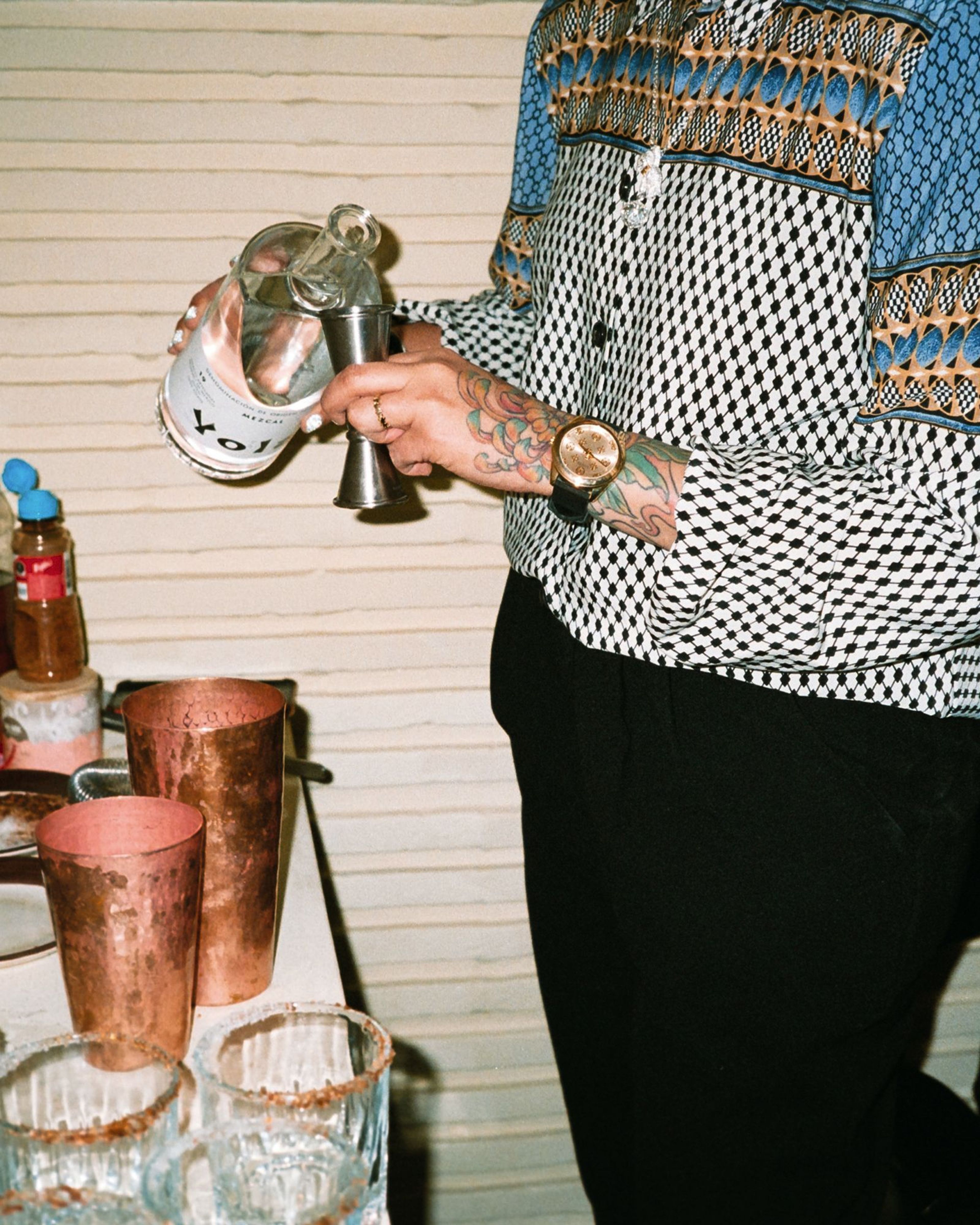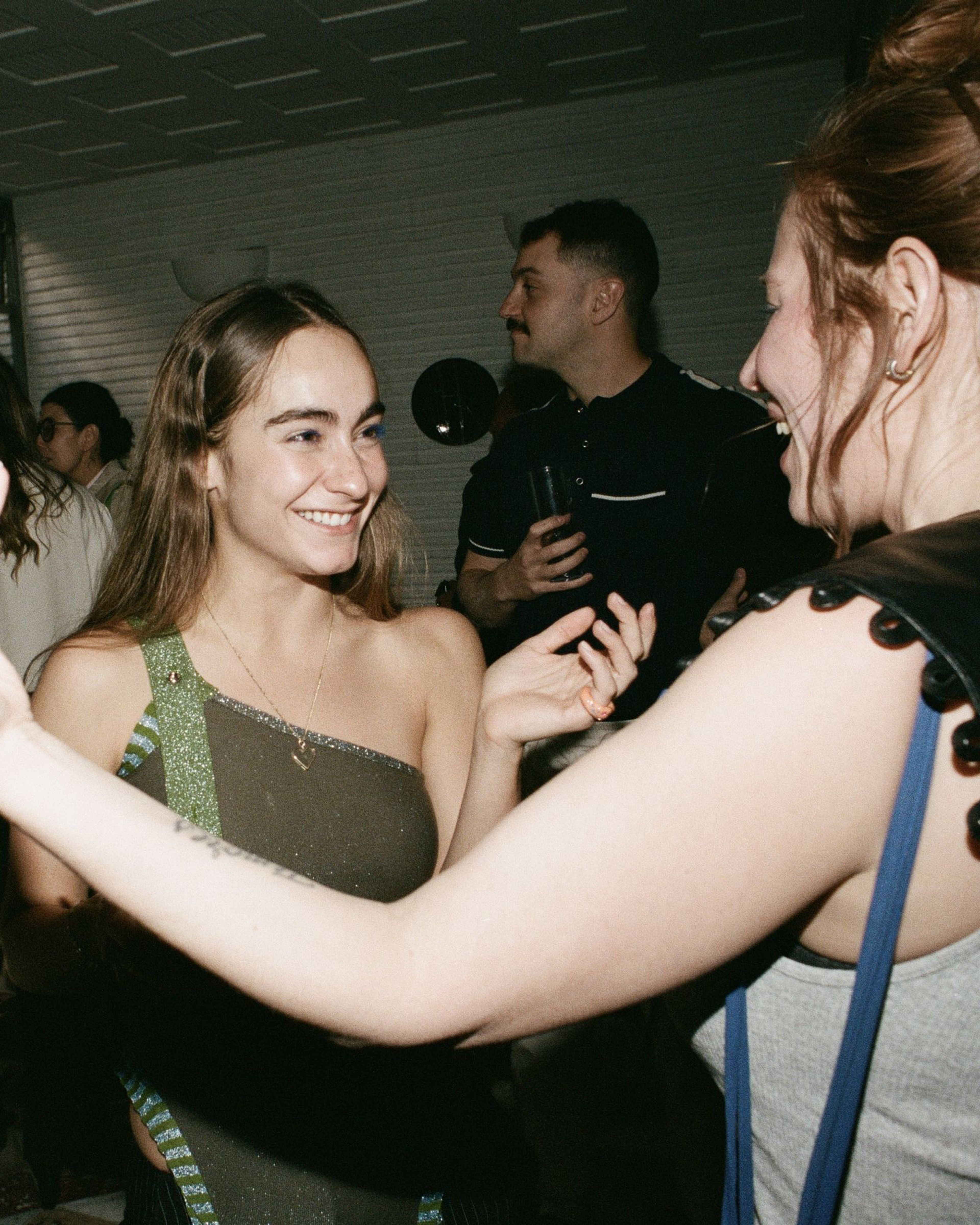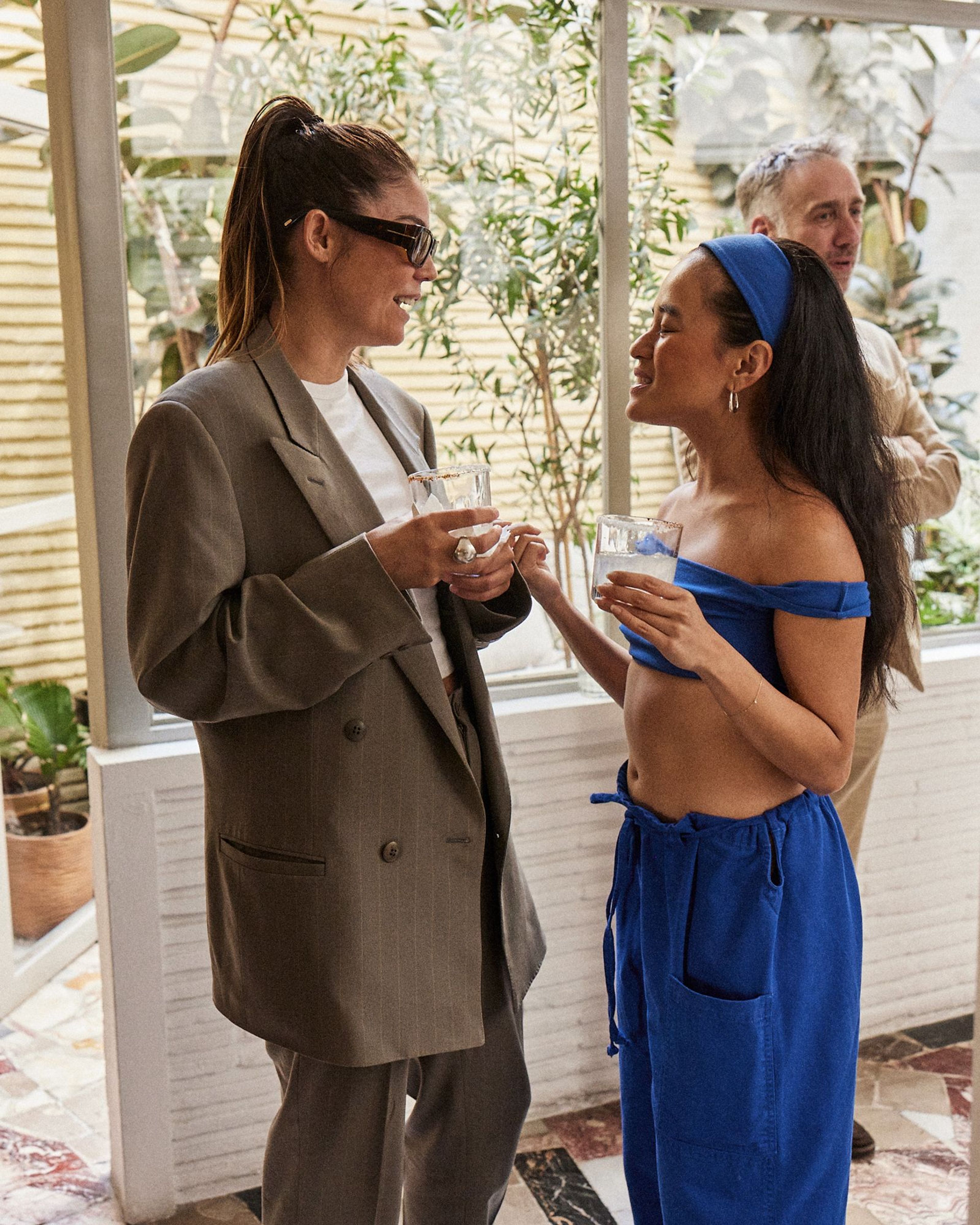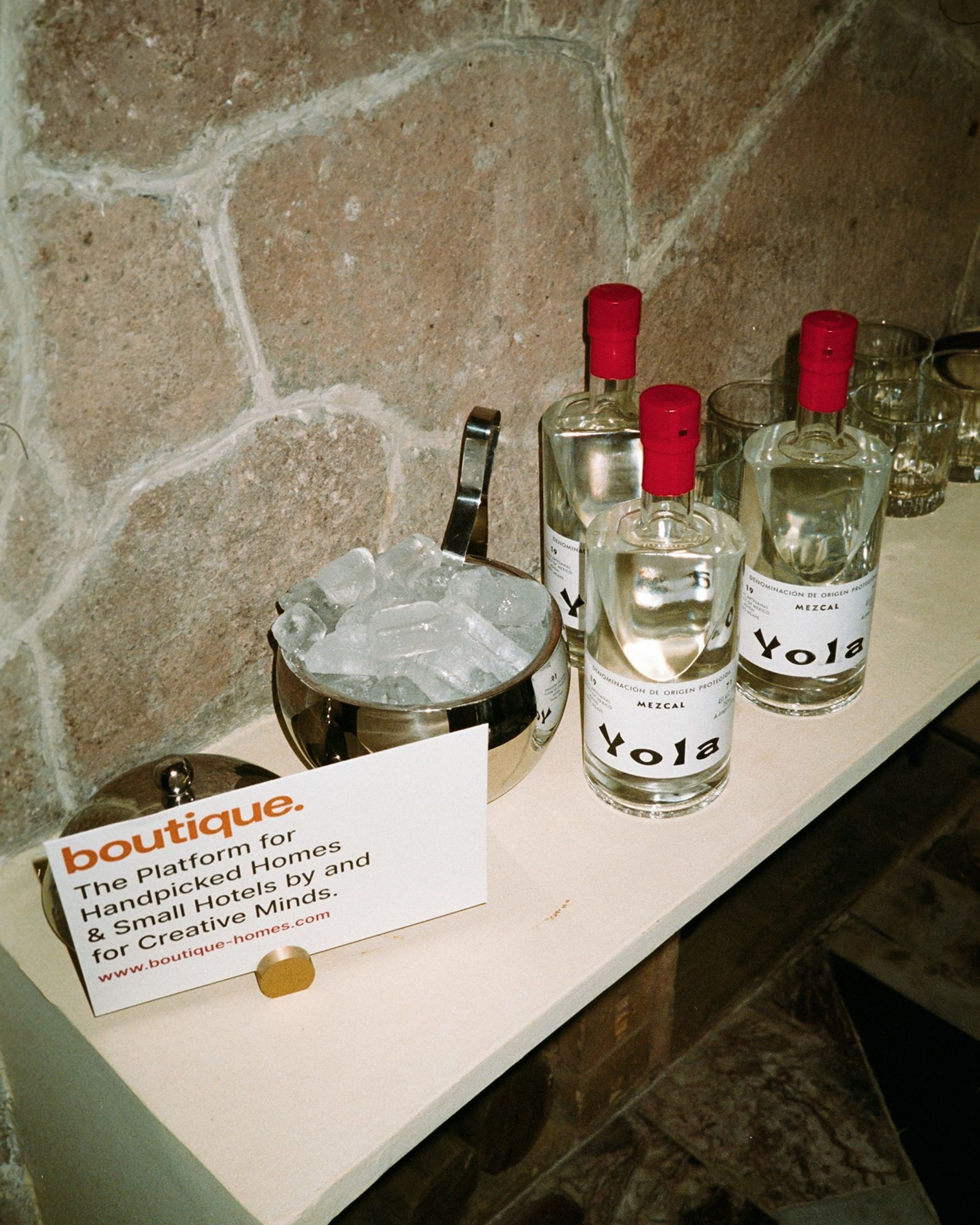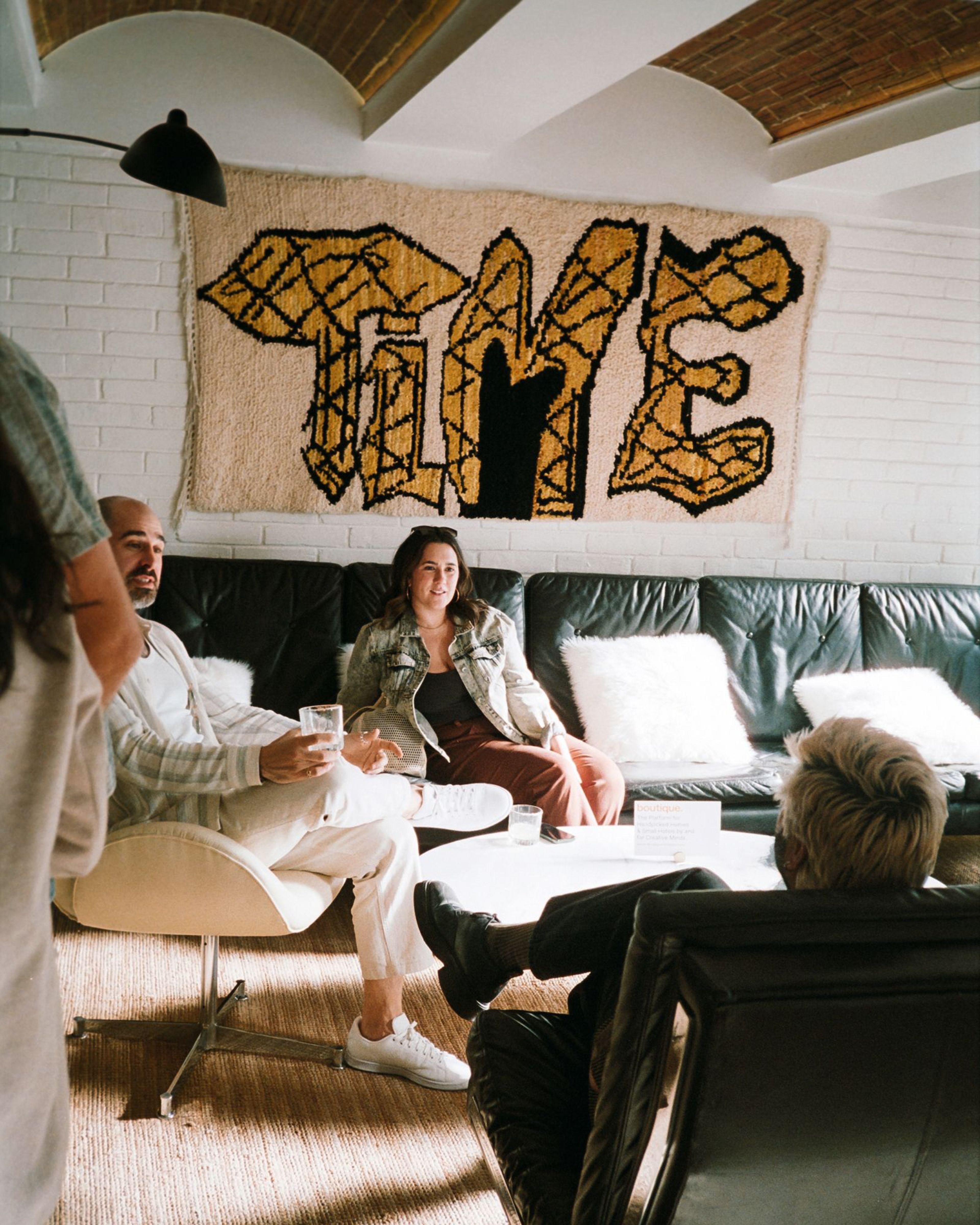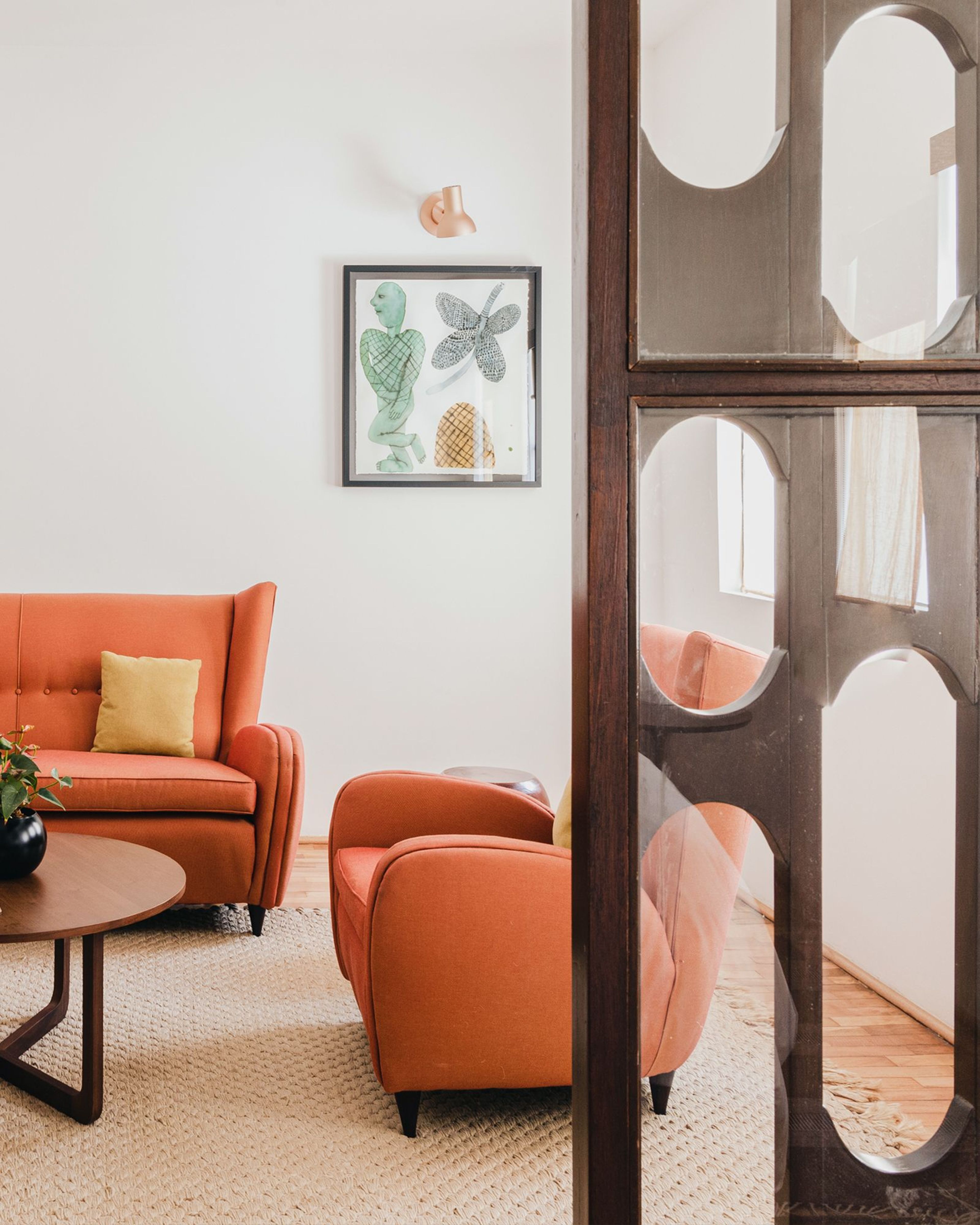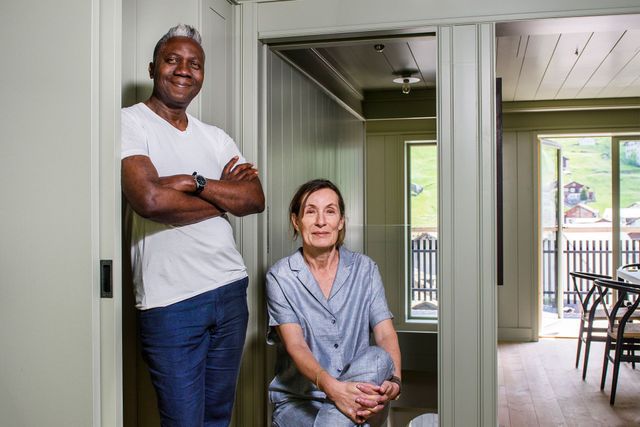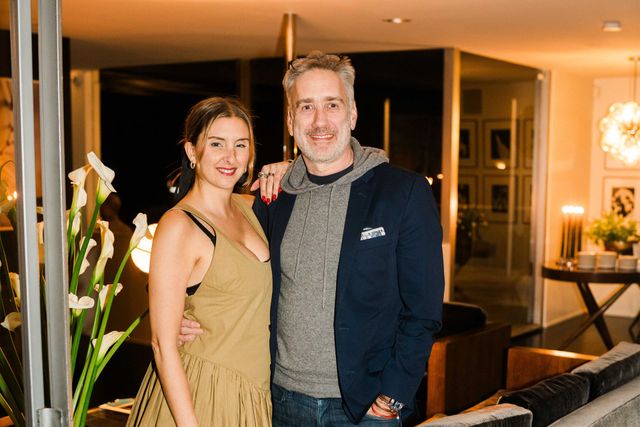
Yola Jimenez on Mexico City, Mezcal and the Rebirth of Casa Pani
We meet Yola Jimenez, the visionary behind the wildly popular Yola Mezcal and co-founder of Mexico City’s go-to guesthouse Casa Pani.
- Category
- Q&A
- Written by
- Louis Cheslaw
- Published
- February 26, 2024
Yola Jimenez might just be the human embodiment of everything the creative set appreciates so much about Mexico City today. Warm, entrepreneurial and social, with immaculate taste and business sense, she is a fixture of CDMX’s design, arts, hospitality and food scenes. Born in Mexico City, and raised between there and Oaxaca (where Jimenez’s grandfather had his own mezcal farm), she lived in the United States for a period but ultimately returned home, where she’s grown her business–Yola Mezcal–into a megahit must-have for bars around the globe, all the while helping to change tired stereotypes about mezcal back home within Mexico, too.
Recently, during Zona Maco, the city’s annual international art fair, Jimenez hosted a party at Casa Pani, the architectural guesthouse she opened in 2020, which is where our conversation begins.
How was the party?
Really fun. This is pretty much the biggest art week in Mexico City—between all the designers and artists, there's a huge turnout of people coming in. So the energy is very vibrant, and given that our event was at the beginning of the week, everyone was still very energized about everything to come.
Casa Pani was really imagined from the beginning as a place where creative people and art-minded people could gather and, to be honest, we have a history of making fun parties for that crew, both planned and impromptu. This was the same. We had some delicious cocktails which really got everyone in the mood, and the food was excellent—my friend who owns Campobaja made a seafood feast, Baja-style, with oysters. So everyone was very happy, and I got to know some new people, which was great. It's just a house that gives itself to you to feel relaxed and have a good time and explore.
Is your crew there mostly new friends or old?
It is very much a combination. There is a big art world crew here of my friends that have galleries, and we've been friends for a long time. I love being a part of the creative group in the city, but Mexico in the past decade has also become a place where people come and go, especially creatives, in a big way. So I'm constantly meeting new people, and usually when someone comes to Mexico City, they always want to come back and stay longer the next time. So I’m constantly adding new people.
How do you all make time to see each other?
Oh, Mexico is a very social place. I go to all their business places all the time. We're always with our friends here, and we see each other for pleasure as well as work.
The magic of Mexico is that it's still a place where things feel possible, even for a younger generation.
Where did you grow up?
I grew up partly in Oaxaca, partly in Mexico City. So I feel very, very rooted here. I’ve also lived in New York on and off, and in LA. But this is a very hard city to leave. I would say you miss it right away. My mind always had a plan to go back. Also, I've been in the mezcal business for 16 years now, so being in Oaxaca to oversee certain things is important. I feel really lucky that I've been able to have a life where I can come back and forth. I think that that's the most enriching life you can have, traveling to different cultures and having different experiences. But yeah, this is home for sure.
I love the idea that you miss it the second you leave it.
Oh yeah, that’s very common. My friends are always like, “Oh my god, I need it,” as soon as they go.
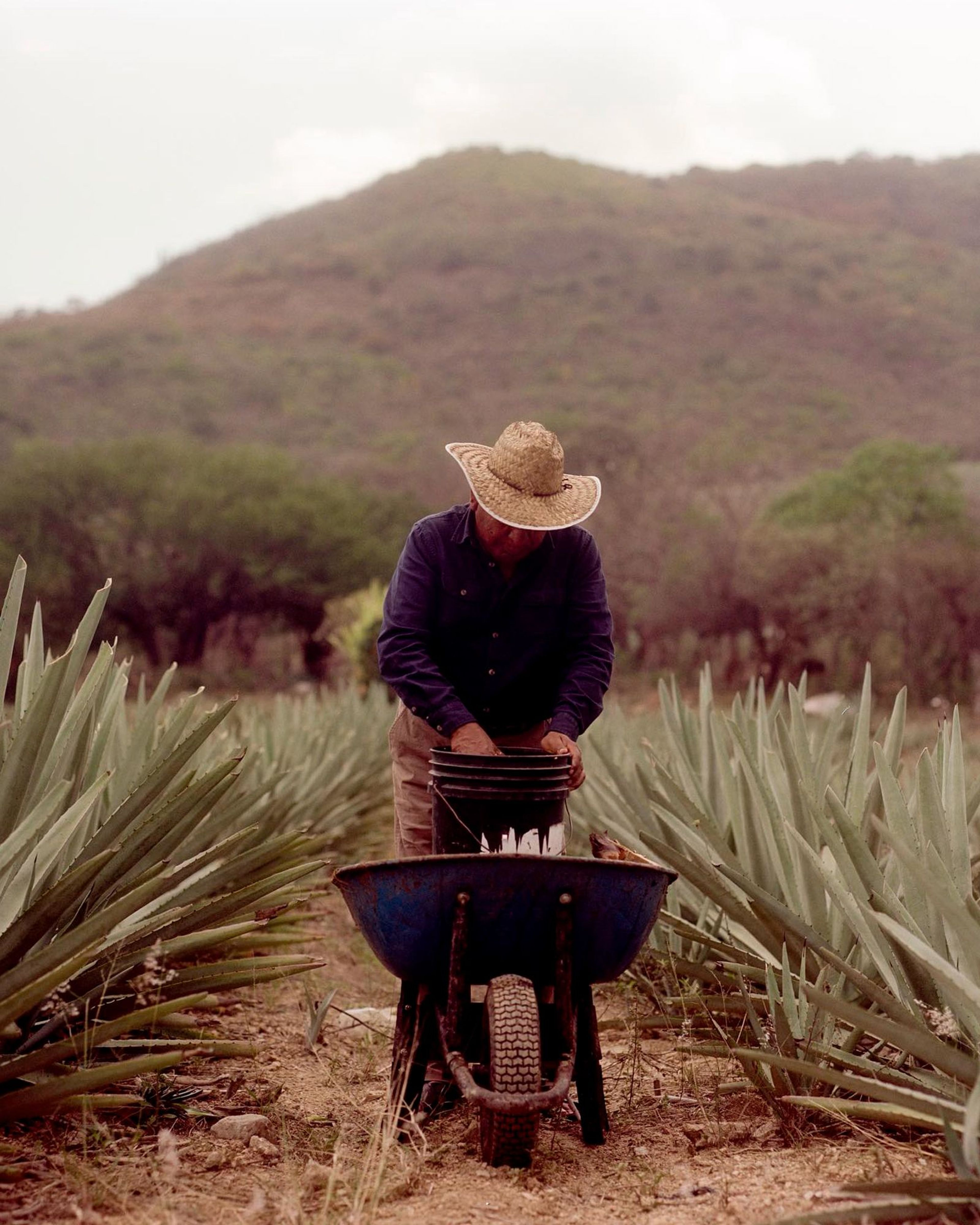
Photo: Yola Mezcal @yolamezcal
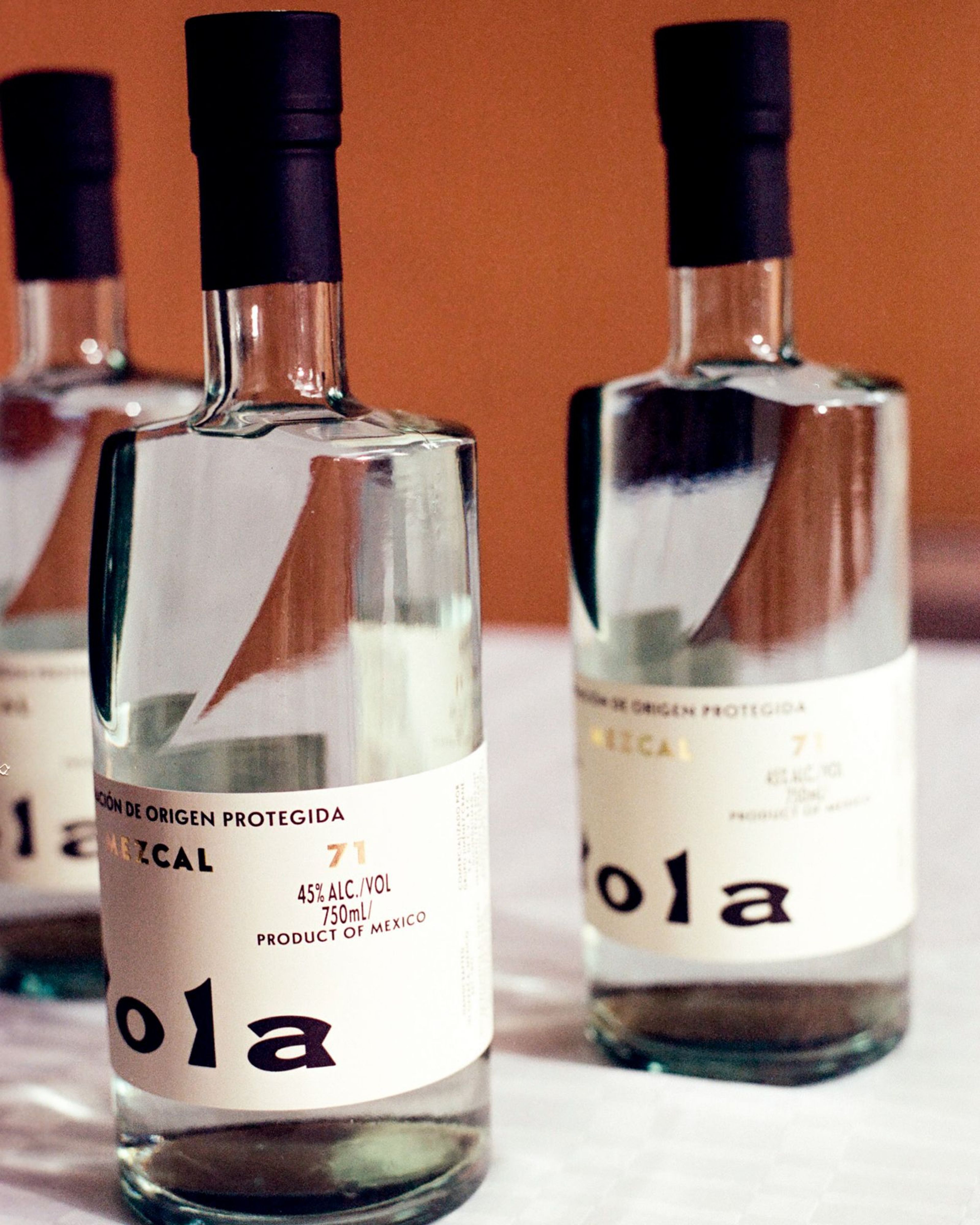
Photo: Yola Mezcal @yolamezcal
How did you get started in the mezcal business?
My grandpa would take me to his farm, where he made mezcal. I grew up with mezcal very much ingrained in my culture, and my father was very, very proud of it. I was always so surprised that it was such an important thing in Oaxaca, for all of the families, but then you would come to Mexico City and nobody wanted to even touch it. That was one of the things that I wanted to change growing up, so I started working on it with his recipe in my early twenties. I didn't know what it was going to turn into, but it allowed me to meet a lot of producers and to educate myself. From there, something that I thought was going to be a hobby at first became a big part of my life. And then eight years ago, my business partner and I decided to start a version of the brand that would be more international.
Why did nobody want to touch mezcal back then?
I think it was racism, really. It’s a history of racism that still exists towards the indigenous communities in Mexico, and it’s something that's not talked about nearly enough. What's interesting is that tequila is mezcal, but it never had the stigma, and mezcal was considered a poor person’s drink all of my life, basically. It wasn't until the indigenous parts of the culture started to have a renaissance, which included a lot of the chefs wanting to go back to a Mexican identity, that mezcal was sort of rediscovered and then exploded, which is great for the most part. But we have to be careful of how we grow, so it doesn't become something else that foreigners come to take from Mexico.
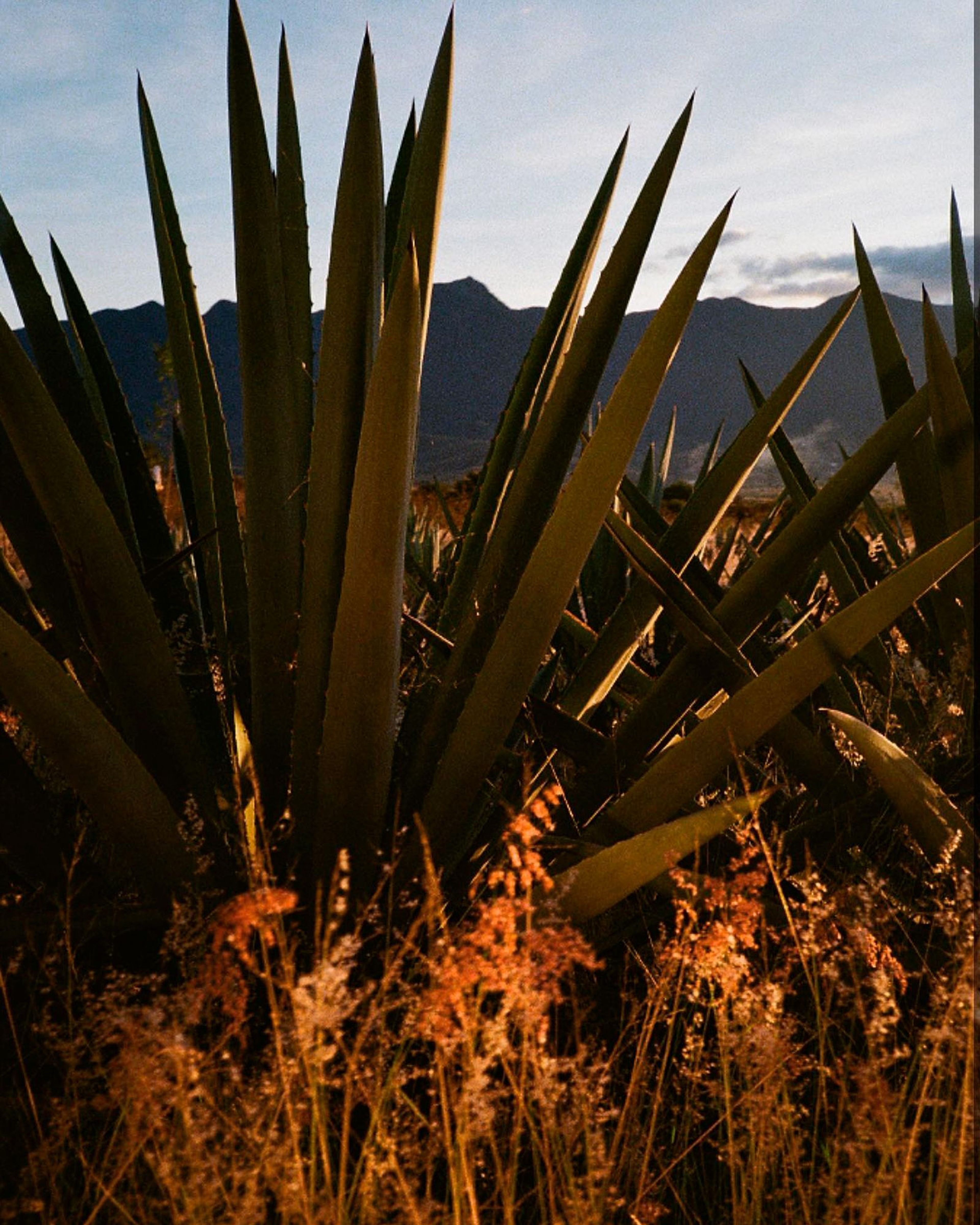
Photo: Yola Mezcal @yolamezcal
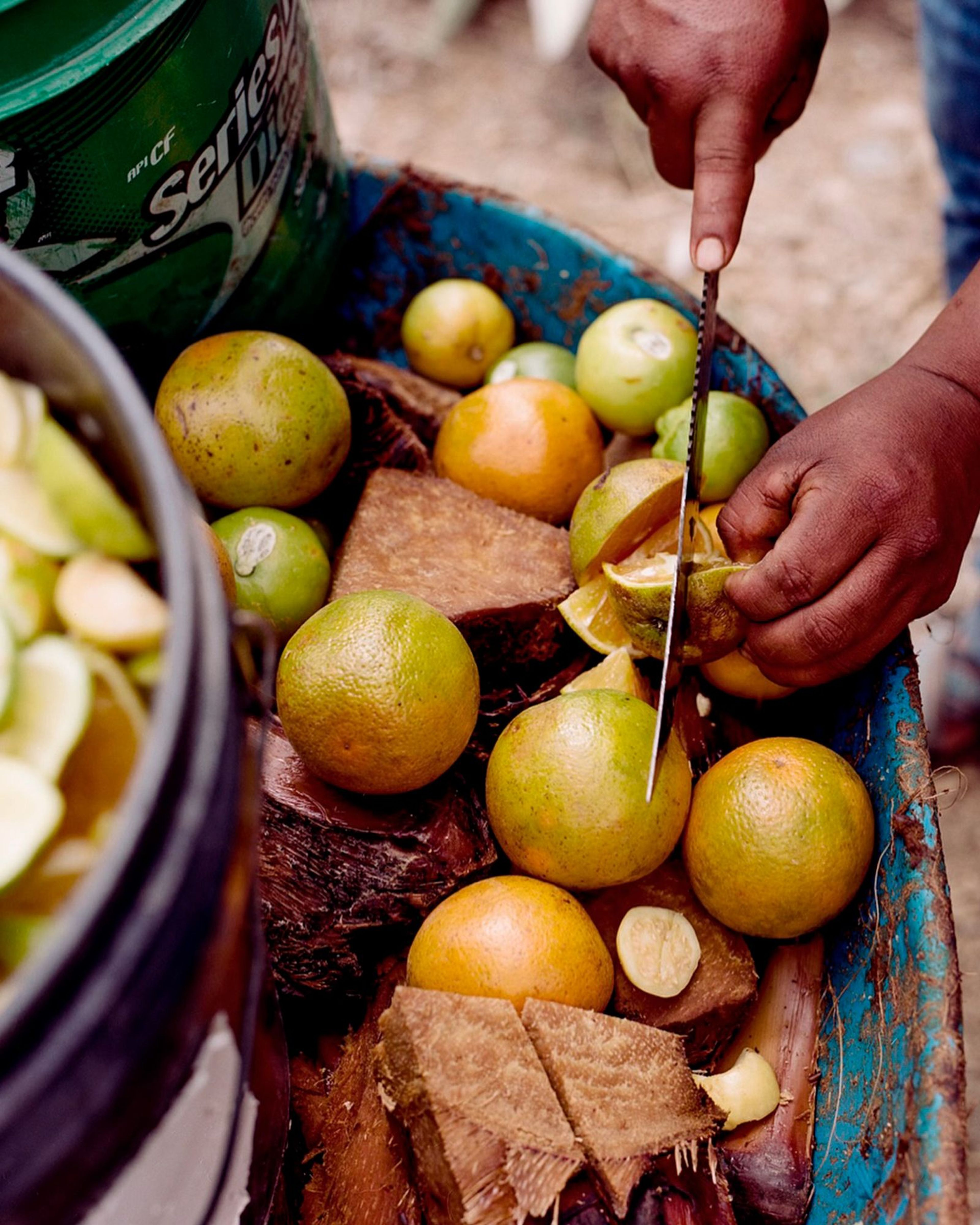
Photo: Yola Mezcal @yolamezcal
When you go to your own farm now, do you get memories of being a kid with your grandpa on his farm?
Yes, I do. It’s one of my favorite things to do. Being in Oaxaca City and taking the car out there feels like visiting a completely different part of the world that not a lot of people get to see. But I love it. It’s my favorite place on earth. I feel it most being around the people there. They are very different in a great way, and just have a different way of moving and communicating. Their sense of time is very different; it just makes me feel calm. Everyone also has a very different relationship with work, so I enjoy that, and with problems in general, they're people who are just always trying to find solutions.
Where in Mexico City do you live, and why?
I’ve lived in Roma Norte for 15 years. I moved here as soon as I started living on my own. It’s a wonderful, calm environment, full of restaurants that I really enjoy which are very close by, with new ones opening all the time, but keeping the very old neighborhood architecture. I also really like not having to use the car very much, and Roma Norte is somewhere you can walk everywhere.
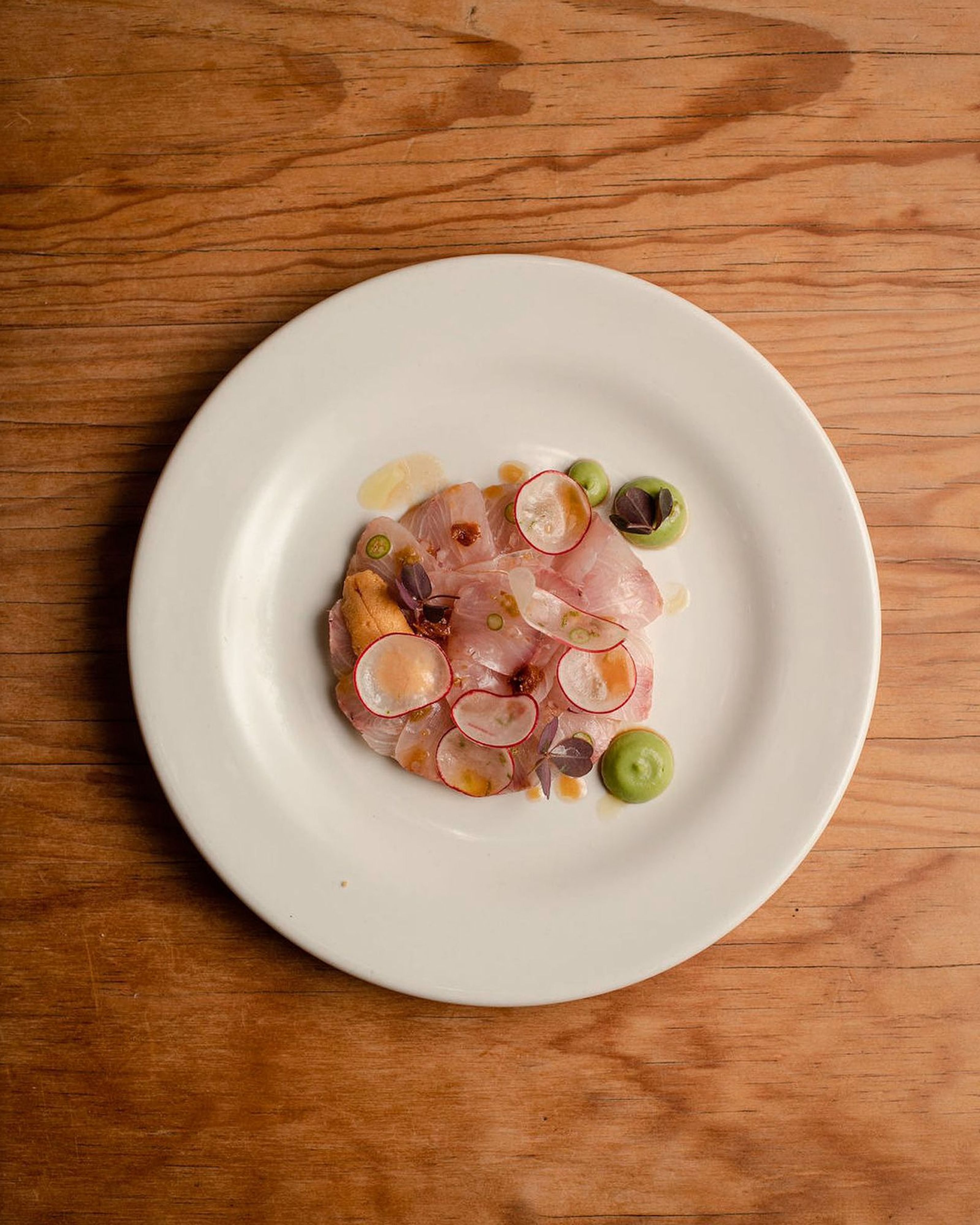
Photo: Maximo Bistrot @maximobistrot
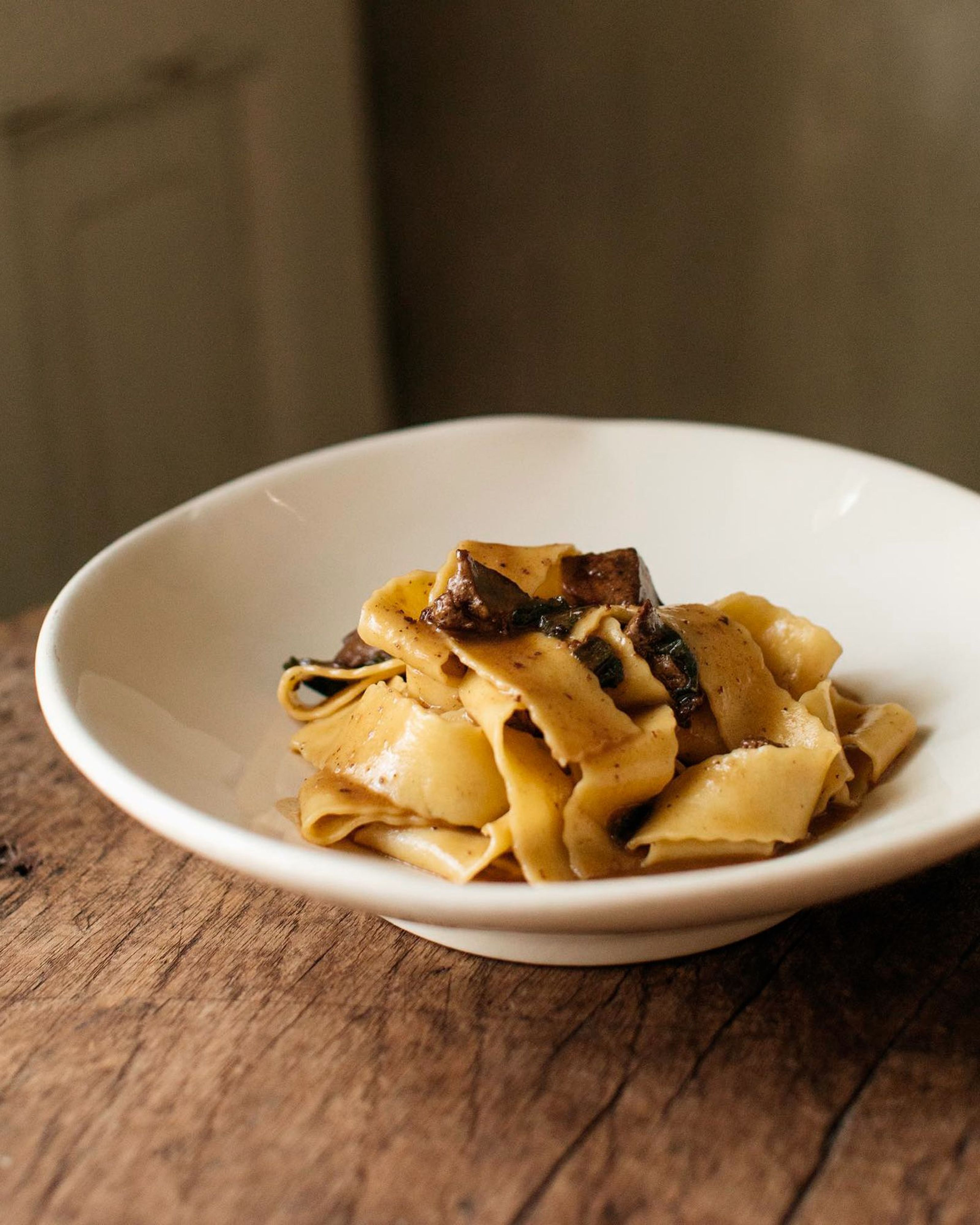
Photo: Restaurante Rosetta @restauranterosetta
Where do you like to hang out in the area?
So many places. I love Maximo. It's a wonderful place to eat. Rosetta as well has really beautiful food. I'm friends with both chefs, and Rosetta has a bar on the top of the restaurant that I go to all the time, with very exciting and different cocktails in a beautiful space. Even the parks have places that are very unpretentious, with tables outside and naturally wine, which are wonderful in good weather.
How did you become friends with those chefs?
The community here is pretty close. We're all friends with each other. It doesn't feel like a weird competitive energy at all. Everyone is very open, so I’ve been able to become very good friends with a generation that started a lot of the big places here. But I'm very happy to see an entire new generation of people who are really bringing their ideas, which just keeps it exciting, and I’m very happy to support.
What is it about the guesthouse as a business that excites you?
I think it's just that hosting and meeting like-minded people go very well together. I feel like my worlds are intertwined now in a way that's very beautiful, between the culinary community, hospitality, mezcal, the art world. A lot of these people are travelers, and I want us all to know each other.
Between the guesthouse and Yola Mezcal and your other ventures, you have your hands in multiple businesses. Is your brain constantly switching modes?
I think for the most part, it’s all using the same part of the brain. Not to sound corny, but it's about connection for me, and making people feel they’re in the places I come from. I feel very, very lucky that I'm able to set up these businesses and meet the people I do, who then show me their towns and their places.
With Casa Pani, how did you come across it, and how much love did it need?
So, I was living very close by in an apartment. Then, the house was only known by architects. Mexico City has changed a lot the past few decades, because the population is growing, so we need to build more apartment buildings, and that has really made some areas change their architecture completely. The Polanco neighborhood, where Casa Pani is, has changed quite a bit. I hate seeing old houses being torn down, and walking through the neighborhood, I saw the house was on sale. The son of the family that had lived there was living abroad and couldn't really take care of the house any more. The sign said if you wanted to develop it, you could, and I was just appalled. Because the house was incredible already. There's nothing like it anymore, and we had to figure out a way to keep it.
So a couple of friends and I decided to buy it and try to rescue as many of the original details from the early 1960s as we could. Mostly, that meant taking out all the layers of paint and trying to get back to the original details of the floor and the walls, which were really beautiful underneath. Now the great majority of the house is in the original state—we just changed the bathrooms and the kitchen a little bit, and then we added a newer small space in the back only. But the whole idea of getting the house was to restore and preserve it.
Has it become the kind of gathering space you dreamed it would?
Yes, I'm very proud. It’s a place where people feel at home, and where people feel happy. It has been a great place for my friends especially. During Covid a group of us moved in there to be together, and now it’s a special place for all of them, and I hope we can make it one for even more people.
Do you also help guests find their way beyond staying at the property?
Yes, we’re always there for advice. Ana Castella, our art advisor, is a fantastic leader of the arts in Mexico. So while we try to help our guests find spaces at restaurants they might like, she offers recommendations of the best places and galleries to go to, and can get you into spaces you wouldn't be able to otherwise, including many in the contemporary arts scene.
The magic of Mexico is that it's still a place where things feel possible, even for a younger generation.
Do you feel you’re one of many female business leaders in Mexico?
Completely, it's very tangible. Just our female chefs are so important. They're taking over. Of course there's a big machismo culture in Mexico, but at the same time, I think that it's a place that really respects women too, and has a mother culture that allows for women to be in big positions of power. You think you’d feel it in so-called richer countries, but I don't. We have a general election coming, and the two biggest parties are led by women, and it hasn't been a big thing. We've taken so many important steps, on women's rights, abortion rights, the right to equality and fair pay. Mexico has become an incredibly progressive country in so many ways—there’s of course so far to go but we're on the right, and I feel really proud to see that, and to be a part of it.
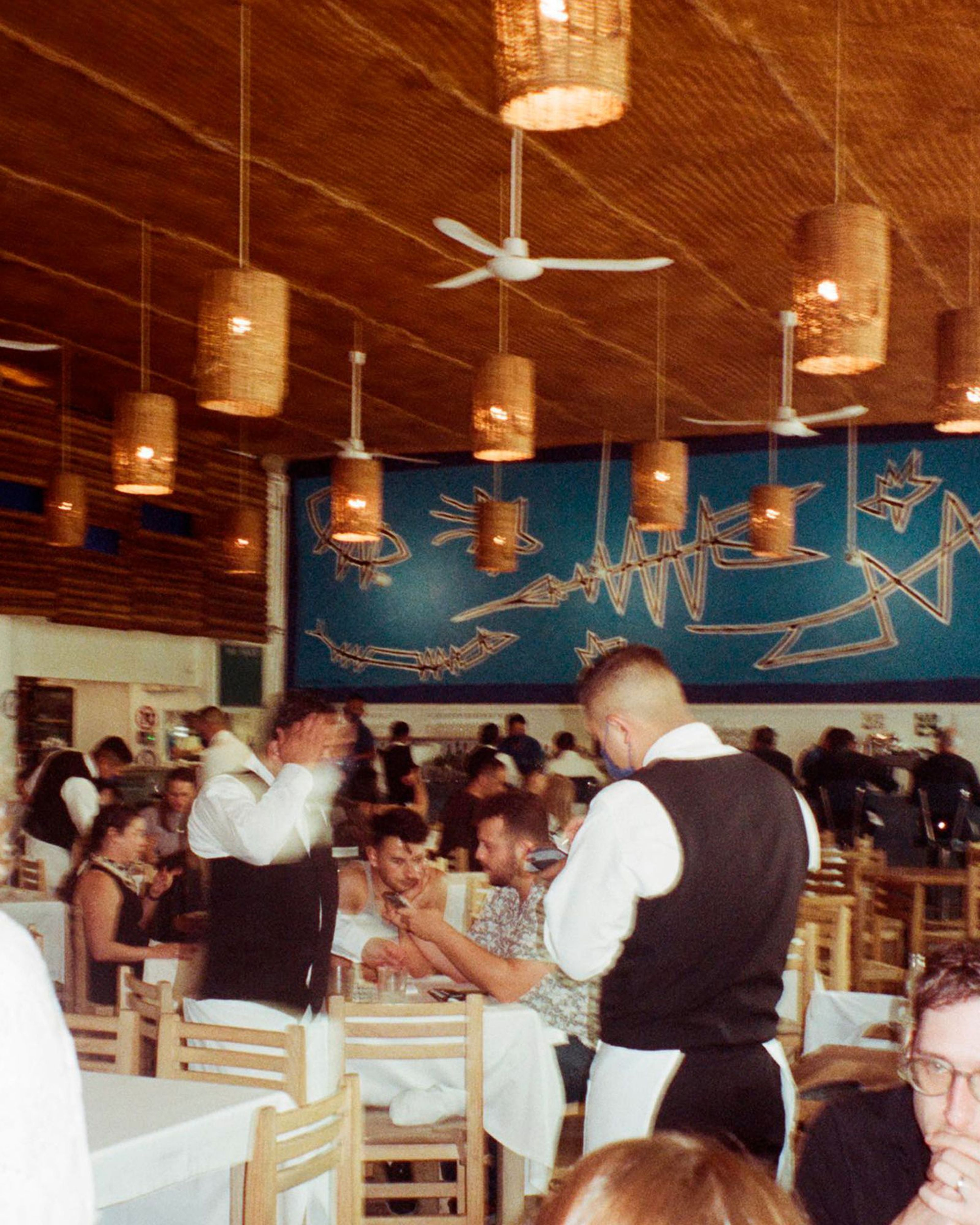
Photo: Contramar @contramarmx
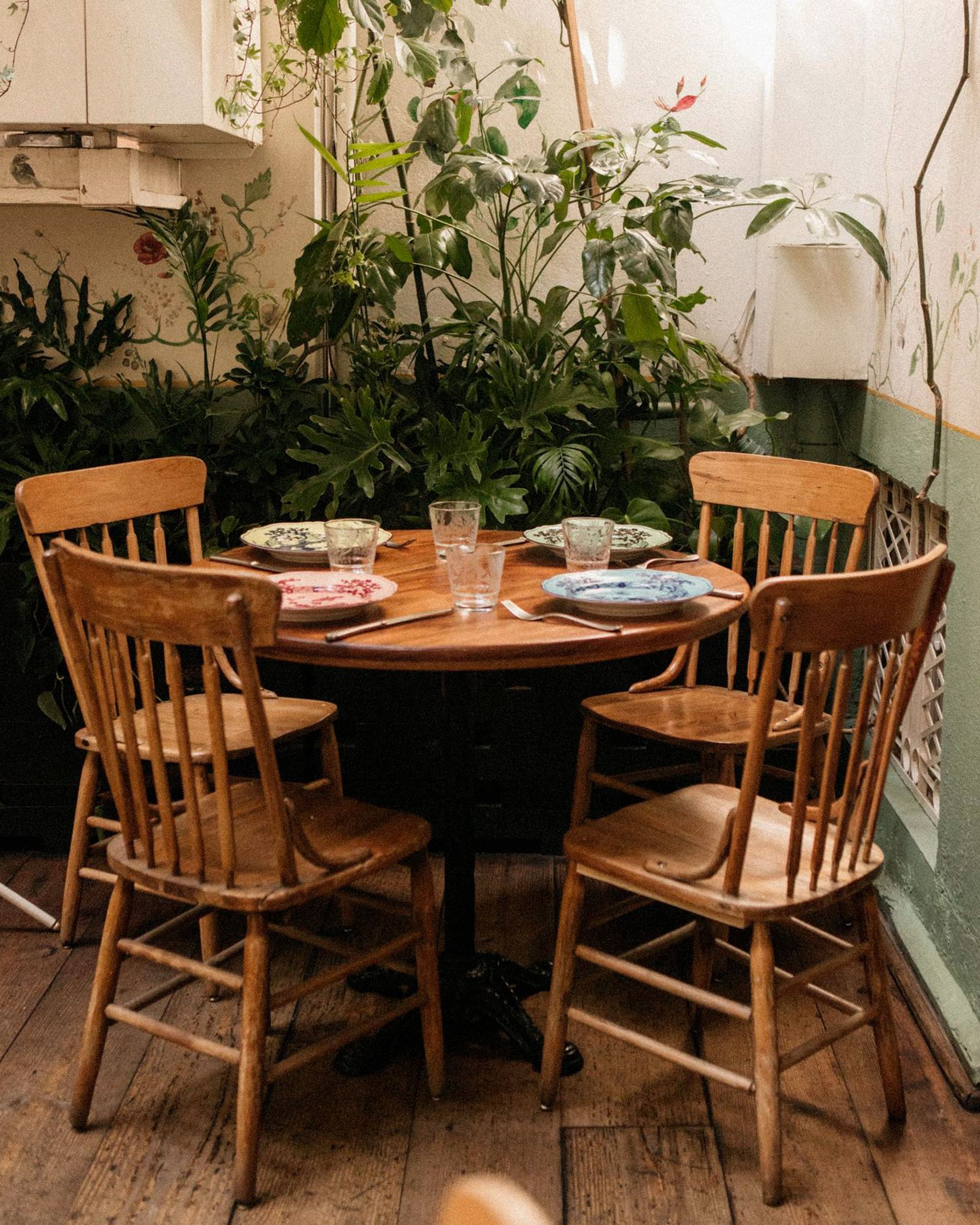
Photo: Restaurante Rosetta @restauranterosetta
Who are one or two female creators in Mexico City that you’re particularly inspired by at the moment?
I feel Gabriela Cámara, the Contramar owner, really started the first wave of powerful women doing business, taking over, making all the decisions, and in her case making the most successful restaurant in Mexico. She’s a great hero of mine. And Elena Reygadas, the Rosetta owner who went to the source of Mexican food farming, has led a new wave of Mexican food that is fresh and traditionally based but different and wonderful, and she's also just a lovely human being. Incredibly hardworking—everyone respects and admires her as well. And of course there's still a lot of really strong women in the mezcal world that have stepped up and are running the best brands as well. So I feel like it's happening everywhere.
When you do leave the country to travel, what kind of trips are you looking for? Rest and relaxing, or cultural stimulation?
Cultural simulation. I think that is the most interesting thing in life, to be exposed to other cultures and to talk to people and see art and have a culinary experience. That for me is the most wonderful thing, and it’s what has given me the greatest pleasures in life. I feel so lucky to be able to travel. I wish it was more readily available for everybody.
When did you first start traveling?
I was lucky because my mom really liked to take the car out. Both of my parents would take the car and travel with us on the weekends. In Mexico, a lot of families just say let's grab the kids, and go wherever. And that's what we did. I remember I loved the ocean when I was a kid, and my favorite thing to do was to go swim in it. My parents would do that for us without much of an effort, which I really liked. I remember seeing how different the food was in different places always really excited me, and I wanted to know more about that. I remember being very surprised the first time I saw sushi in Mexico City. I remember it so clearly.
It's so nice to have parents who let you adventure.
Yeah, and I know it's a very cultural thing. People here are very relaxed and very open. It’s a culture of spontaneity, and I know that other cultures are not so much like that. I've been on so many road trips—many that were really horrible!
Do you have any travel plans this year, or not yet?
Just some events in London, and I'll also be in New York soon. I spend a lot of time there working—it's a great market for us, and I have a lot of friends that have restaurants and bars that I love. It's also a very, very tight community there, just like Mexico City.
What do you think gives so many people in Mexico City the confidence to try and start their own projects?
Honestly, I think the most important reason is that it’s not so expensive. The magic of Mexico is that it's still a place where things feel possible, even for a younger generation. When you start having places where that doesn't exist, like sadly New York or L.A., it's impossible. You need to have an insane amount of money to do anything. I think that's what has made Mexico City so vibrant, it’s that many younger people can still try. Many artists will come, because they can afford spaces to do things, and interesting galleries can afford to get a space too. It's changing, for sure, but it's still possible.
STAY: Casa Pani
DRINK: Yola Mezcal
EAT: Campobaja, Maximo, Rosetta, Contramar
EXPLORE: Zona Maco
Photograph of Yola Jimenez (top) by Evan Robinson
